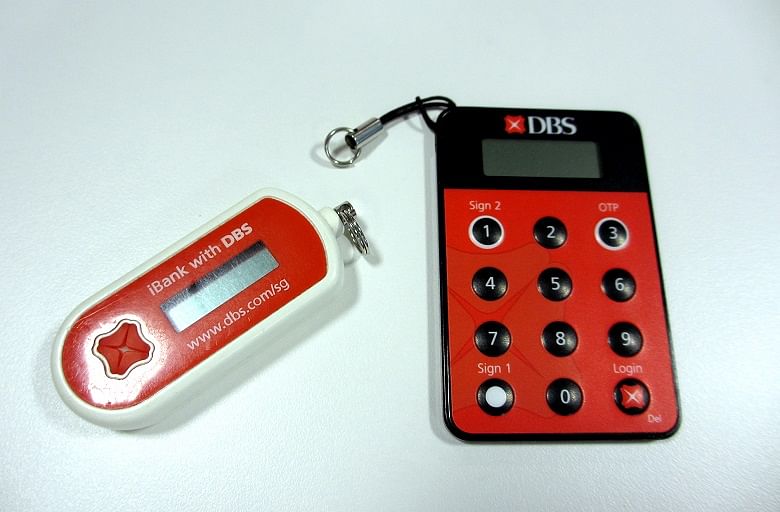SINGAPORE - DBS is rolling out "soft" tokens for its 2.6 million online and mobile banking customers to replace hardware tokens.
The soft token is being embedded in DBS' digibank app and personalised for every user in batches from Tuesday (April 11). It is used to generate the one-time passwords (OTP) needed for accessing banking accounts via the same app.
The bank, Singapore's largest, hopes to let customers ditch their physical tokens by June next year (2018), when the soft token is upgraded to take over all the functions of the hardware token.
This roll-out follows a successful trial which started in December last year involving some 200,000 customers.
"It's part of our innovation drive so that banking becomes simpler for customers," Mr Jeremy Soo, head of Consumer Banking Group Singapore at DBS Bank, told The Straits Times.
He assured customers that the bank is committed to provide the "highest level of security". Its digital token is encrypted and protected against phone malware, he added.

For a start, the soft token targets mobile banking users. Customers will be alerted by the bank via an e-mail to register the soft token in the digibank app.
Once registered, they need not enter the OTP manually as it is automatically accepted by the app.
Over the next few months, the soft token will be upgraded to also generate OTPs for customers who access their banking accounts on their computers.
DBS will continue to issue hardware tokens until June next year, when the soft token has all the advanced features of the hardware token.
The advanced features are for authenticating high-risk transactions such as adding a payee or fund transfers.
The Straits Times estimates that the exercise could save the bank more than $12 million in hardware costs, as these tokens - priced at upwards of $10 each - are typically replaced every five years after their battery runs out.


